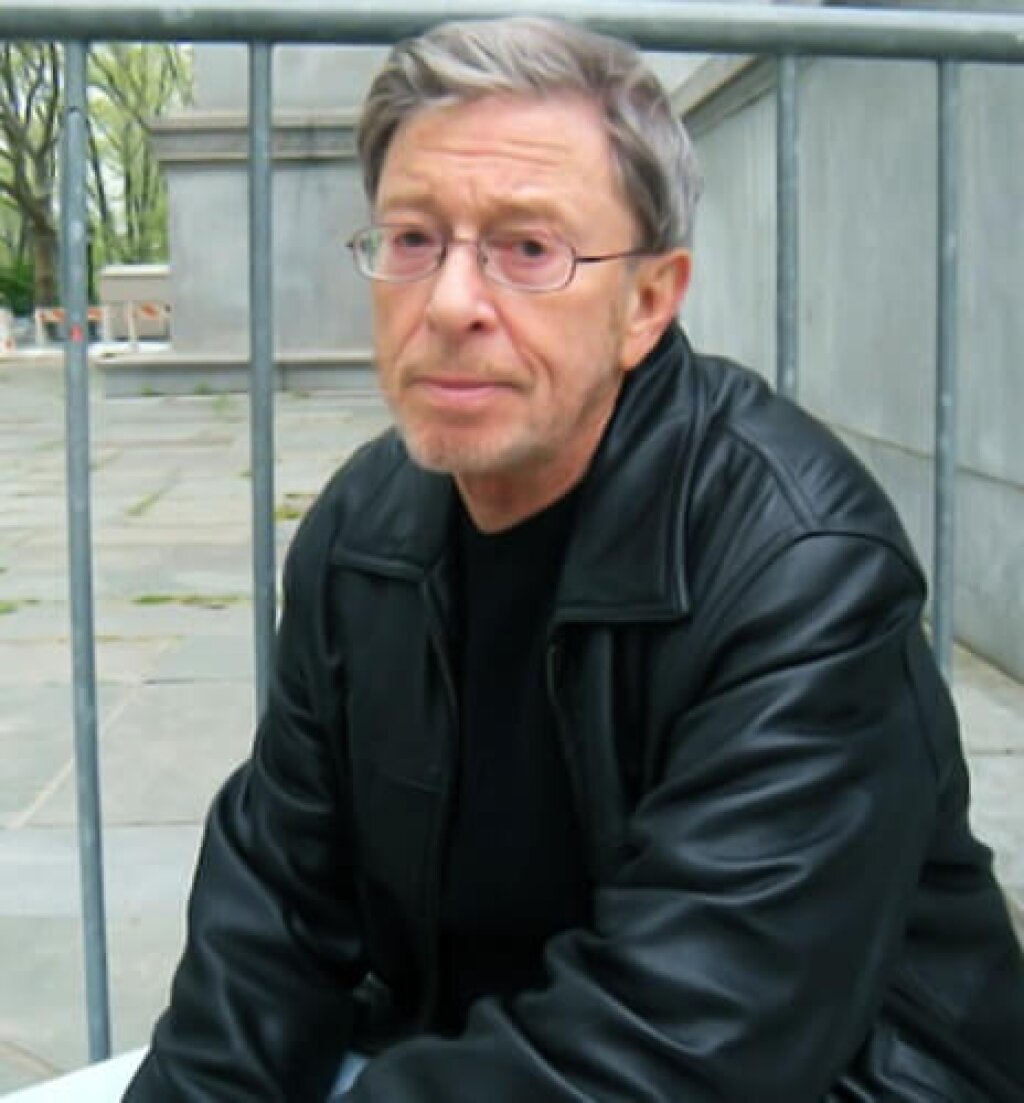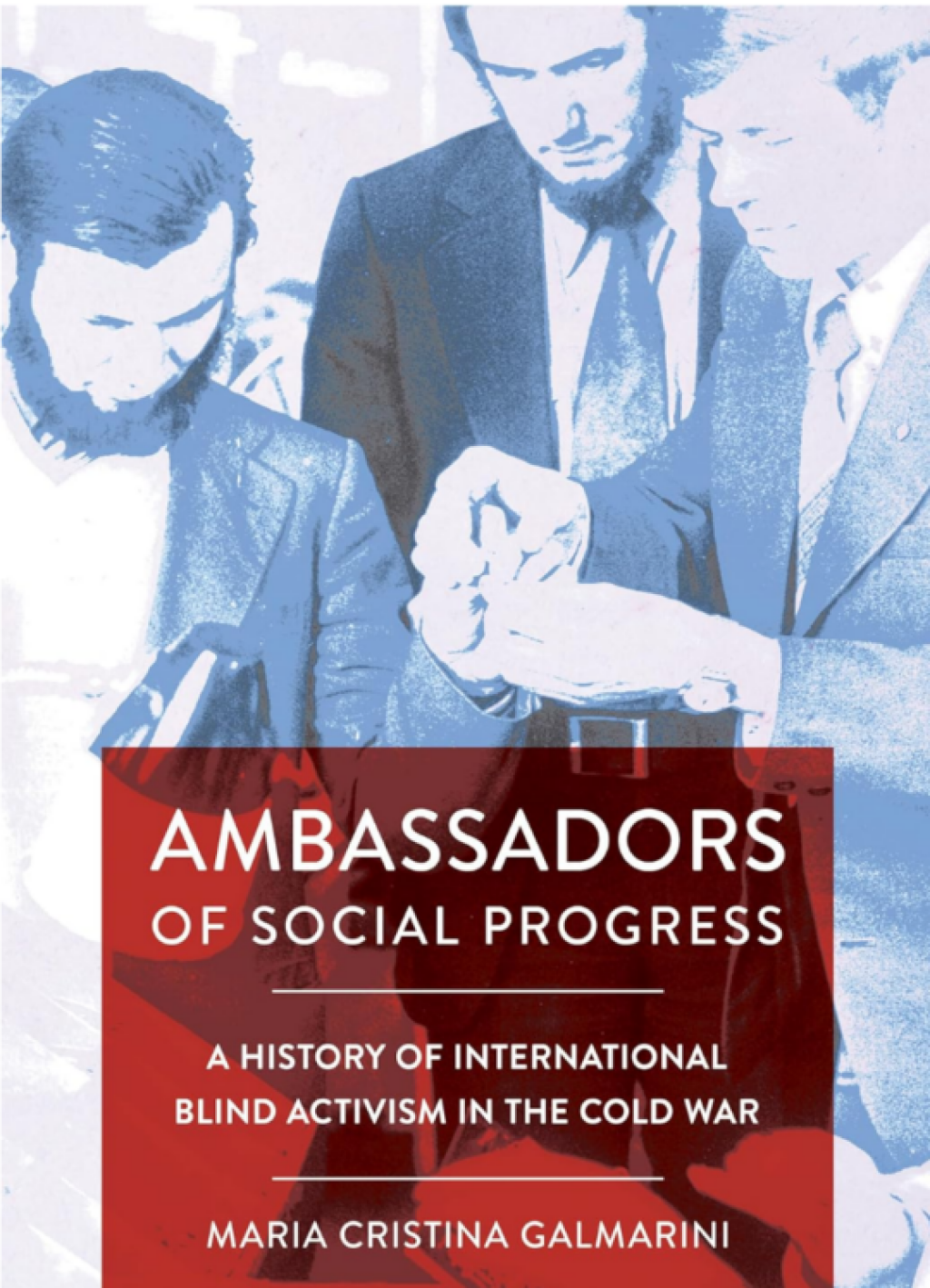Earlier this year, our friend and colleague Stephen Cohen passed away. His contributions to the field of Russian, East European, and Eurasian Studies will be felt for years to come. Professor Cohen was a historian, but his legacy extends far beyond his scholarly work. Every year, the Stephen Cohen Fellowship—established on Professor Cohen's initiative and supported by Katrina vanden Heuvel and the Kat Foundation—funds the graduate education for master's students in the Department of Russian & Slavic Studies at NYU. Professor Cohen has also helped enable doctoral students to conduct dissertation research in Russia through the Cohen-Tucker Fellowship.
As we prepare to celebrate Thanksgiving in the United States, we give thanks to Stephen Cohen for not only his work in the REEES field but for the generosity he, Katrina vanden Heuvel, and the Kat Foundation have shown to budding Russia scholars. We honor him today by publishing the testimonials of some of current and former students who have benefitted from Cohen Fellowships.
Natasha Bluth (Cohen Fellowship)
The Stephen Cohen Fellowship enabled me to continue my studies of the former Soviet Union, not only easing the financial burden of graduate school, but also providing the opportunity to merge journalistic training with area studies, engage with a wide range of scholars and regional specialists, and conduct field research in Ukraine. The support and encouragement Stephen Cohen offered at our annual fellowship alumni dinners also inspired me to pursue a PhD in sociology in order to explore post-Soviet civil society, nationalism, and gender from a social-scientific perspective.
Michael Coates (Cohen-Tucker Fellowship)
During the 2018-19 academic year, I held a Cohen-Tucker Dissertation Fellowship, which I used to fund over a year of archival research in Russia on the history of the Great Soviet Encyclopedia. The fellowship allowed me to visit more than a dozen archives in Moscow and Saint Petersburg, and to copy thousands of pages of original documents. Had I not been able to carry out this archival work, I would not have been able to write my dissertation. The travel that the Fellowship enabled was also personally significant to me, because I had never been to Russia before I arrived in Moscow for my research year, even though I had already been studying the country and its language for several years. It is one thing to read books about a particular place, but actually experiencing life there first-hand is quite another, and has been essential to the development of my understanding of the region. I am extremely grateful to Prof. Cohen and Ms. vanden Heuvel for their generosity in funding the next generation of Russia specialists.
Geoffrey Durham (Cohen-Tucker Fellowship)
I was honored to receive one of the 2019-20 Cohen-Tucker Dissertation Research Fellowships. The generous award made possible six months of dissertation research between September 2019 and March 2020 in Russia, Latvia, and Georgia before the spread of COVID shuttered archives and libraries and made further travel impossible. This time was especially productive for following leads from the central archives in St. Petersburg to their counterparts in Riga and Tbilisi. Fortunately, I was able to gather enough materials in that time to begin some of the writing process. I was also relieved to receive one of the Cohen-Tucker Fellowships. Like many PhD candidates in the humanities, I knew that I would need to secure external funding at some point—a concern compounded by my ineligibility for many fellowships as a non-US citizen. I’m grateful that this award has enabled me to continue working towards completing my dissertation.
Angelica Engle (Cohen Fellowship)
I developed my interest in Russian studies and art culture at New York University as a Master's Degree Candidate and Stephen F. Cohen Fellow. Through the generosity provided by the Stephen F. Cohen Fellowship, I was able to develop my linguistic skills at NYU which assisted me in my role as an Archival Ephemera Digitization and Media Specialist at the Blavatnik Archive. In the summer of 2018, through the Global Research Initiative Fellowship, I traveled to NYU Prague to expand my thesis research on Ukrainian Art in the former Czechoslovakia. Upon graduating in 2019, I accepted a Grants and Development Coordinator position with the Walters Art Museum in Baltimore, Maryland. In this role, I work to cultivate funding for free access to arts-integrated education and programming.
Anna Gorshkova (Cohen Fellowship)
I still remember the chills that ran down my spine when I received the offer of admission to the Russian and Slavic Studies MA program at NYU. There was a note at the very end: “Stephen Cohen Fellowship recipient.” That note meant more than the decision itself since I knew I would not be able to accept the opportunity otherwise. The Stephen Cohen fellowship is what made furthering my education possible. And it meant more than furthering education for career opportunities. After completing my bachelors degree at Montclair State University, I did not feel quite finished or even determined on my future path. Moreover, I felt uncomfortable with how much more there was to read, how much more there was to write, and how much more I still wanted to learn. But my time there had come to an end. Continuing my education felt more like an impulse than a practical career advancement. After receiving a chance to attend one of the top MA programs in Russian and Slavic Studies, I was exposed to all the possibilities I could choose from. The Stephen Cohen fellowship not only fulfilled my research aspirations but allowed me to think more broadly and enthusiastically about the next chapter in my life. It not only advanced my skills but prepared me for a fulfilling career in the field I am truly passionate to continue learning about every day.
Susan Grunewald (Cohen-Tucker Fellowship)
I had the pleasure of spending the 2016-2017 academic year in Moscow due to a Cohen-Tucker Dissertation Research Fellowship from the Associate of East European & Eurasian Studies. The support enabled me to conduct research in archives in Moscow and in provincial Russia, specifically Ulyanovsk, on German prisoners of war in the USSR during and after WWII. Without this opportunity, I could not have found the necessary materials to support my hypothesis, write my dissertation, and defend it. The grant also enabled me to become part of a cohort of young scholars of Russian and Soviet history that has evolved into close network of professional and personal relationships. Professor Cohen’s support did not stop with this one year of funding. He met with as many Cohen-Tucker fellows as possible at each subsequent ASEEES conference. His dedication to our research and careers will never be forgotten.
Rebecca Johnston (Cohen-Tucker Fellowship)
In all honesty, I felt inspired by the very creation of this grant, so it was quite humbling to receive it. With so many cuts to federal funding for graduate research and international education, it was heartening to see someone offer a counterweight. It was a gesture that assured us that this work was still worth doing. My dissertation is a study of regional cultural workers across the Soviet Union, and the project could only succeed if I could travel to as many of those regions as possible. This grant allowed me to conduct a complicated, year-long research trip to half a dozen cities across Russia, Kazakhstan, and Ukraine with the flexibility necessary to make it logistically possible. It also allowed me to meet people who will be friends and colleagues for the rest of my life. Especially in the time of COVID, I'm grateful for that connection with our broader academic community.
Emma Micare (Cohen Fellowship)
With my fellowship from Stephen Cohen I was able to pursue a Master's degree in Russian and Slavic studies at NYU. As of now, I am focused on perfecting my skills as a teacher. In the future, I plan to apply for my Russian language extension (thanks to my Master's degree). With this extension, I will be able to teach Russian to students anywhere in New York from grades K-12. Additionally, I plan to continue teaching English in areas with a heavy population of Russian speakers, both in the US and abroad.
Sarah Mills (Cohen Fellowship)
Receiving the Stephen Cohen Fellowship was a crucial step in my career, as it allowed me to receive a Master’s degree that eventually led me to pursue a career in Slavic languages and literatures by entering a PhD program at Columbia University. My two years at New York University were not only valuable preparation for my PhD, but a chance to truly explore my dedication to the field and conduct research that solidified my academic interests. Without this fellowship, I would not have been able to pursue a Master’s degree, and I am now the first person in my family, immediate and extended alike, to study in a doctoral program. I am immensely grateful for Stephen Cohen’s generosity, and I will never forget my experience at NYU.
Brianna Philpot (Cohen Fellowship)
I met Professor Cohen during the first semester of my graduate program at NYU. He spoke with my class about the collapse of the Soviet Union. Without him, I wouldn't have been in that room. I wouldn't have been in graduate school at all. Like me, Professor Cohen was from a small town in Kentucky, but he did big, mind-boggling things and helped me believe that I could too. I graduated in January of 2020, and I am preparing to begin work in US foreign policy and international relations. I am where I am—following my dreams and reaching my goals—because of the things I learned and connections I made in graduate school. Professor Cohen was one of the stepping stones that led me down this path, and I thank him.
Marcus Pixley (Cohen Fellowship)
I am a current Master's student in the Russian and Slavic Studies Department at NYU. The Stephen Cohen Fellowship has allowed me to begin my graduate career. Without the fellowship, I would not have been able to continue my education in this field of study, about which I am most passionate. By allowing me to continue my education, I hope to honor Professor Cohen’s work of advocating for the importance of healthy US-Russia relations.
Jack Seitz (Cohen-Tucker Fellowship)
The Cohen-Tucker Dissertation Research Fellowship (CTDRF) that I received in 2016 was crucial to completing my dissertation and eventually finding a tenure-track job in academia. Without it, I simply would not have been able to spend an entire academic year in the archives in Russia and Kazakhstan, write a successful dissertation, and make important professional connections while growing as a historical thinker. The opportunity to spend a significant amount of time in the archives was especially vital for me, because I had not been able to travel to the archives on preliminary trips earlier in my graduate career. Coming from a PhD program whose graduates are almost entirely working in US history, there simply wasn’t ready infrastructure to support me to make a preliminary trip. My lack of familiarity with the archives in two countries, and the significant delays would have made it nearly impossible to gather the materials I needed to write my dissertation if I did not have the time that the CTDRF allowed me. What is more, extended time in both countries also allowed me to make professional connections with other historians both in Russia and Kazakhstan and also from the US and Europe. These have proven crucial in finding readers for my work and also in identifying opportunities for publications and conference panels in addition to wonderful friends and colleagues. Finally, a longer stay in country was important in that it allowed me the chance to modify my research questions based on what I was finding in the archives and I began to ask very different and sharper questions about my sources than what I had thought before setting foot in the archives. It is not an exaggeration to say that I would almost certainly not now be a tenure track history professor with a significant professional network without the support of the CTDRF, and for that I am truly grateful.
Mimi Walker (Cohen Fellowship)
Without the incredible generosity of Stephen Cohen, graduate school at NYU would have simply been impossible. The Cohen Fellowship allowed me to move to New York to pursue my education among some of the most prestigious scholars and instructors in the world. The fellowship has allowed me to fully follow my educational and professional goals in the Russian and Slavic Studies Department and the International Relations Department. Without the fellowship, it would have been difficult to have surrounded myself with as many dedicated and passionate individuals who share a common worldview. After graduation in December, I intend on transitioning into a career in international humanitarian efforts. I am eternally grateful for the opportunity and privilege to be a Stephen Cohen Fellow.
Yolanda Zhang (Cohen Fellowship)
I’m very grateful for the kind of resources and opportunities provided by the Fellowship. They helped me develop a nuanced understanding of Eurasia and the heterogeneous agents in its history. It prepared me for academic excellency and journalistic professionalism. It has made my time in New York City worthwhile and memorable.



